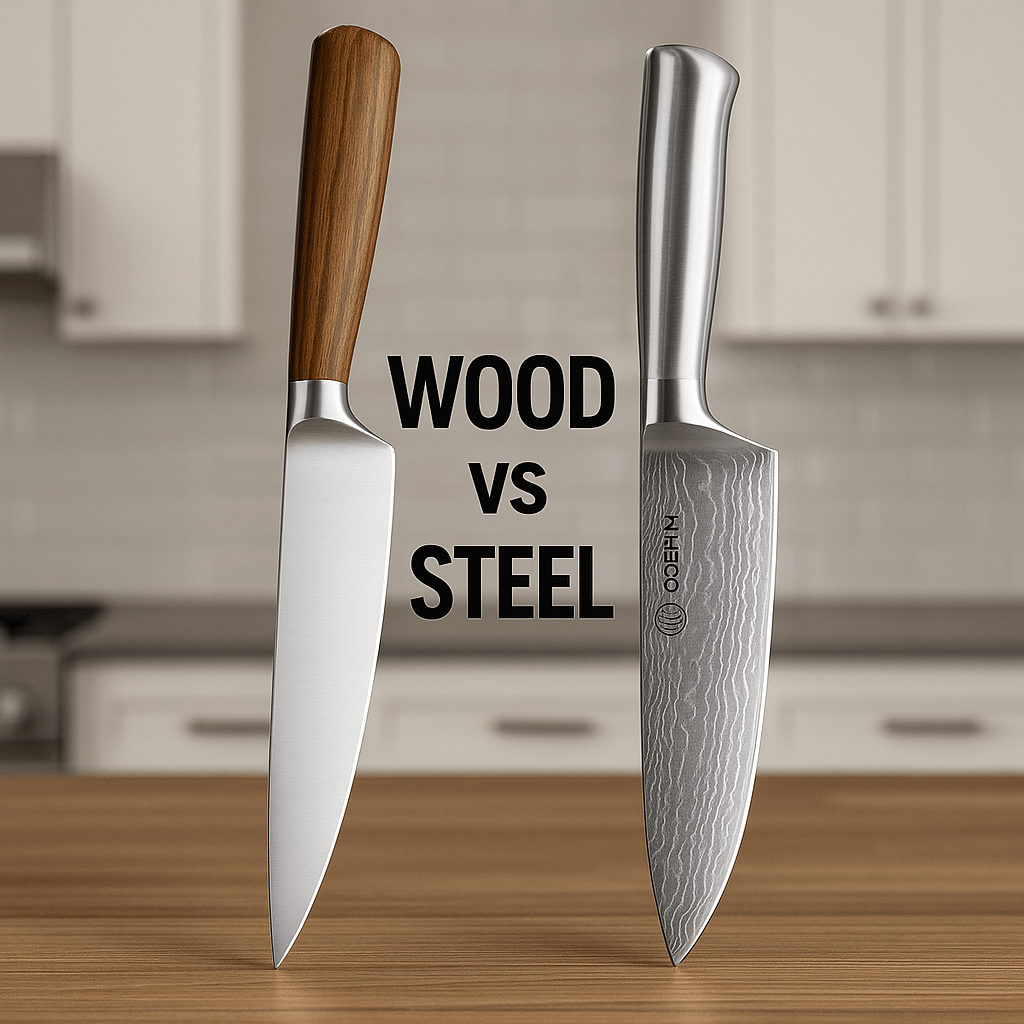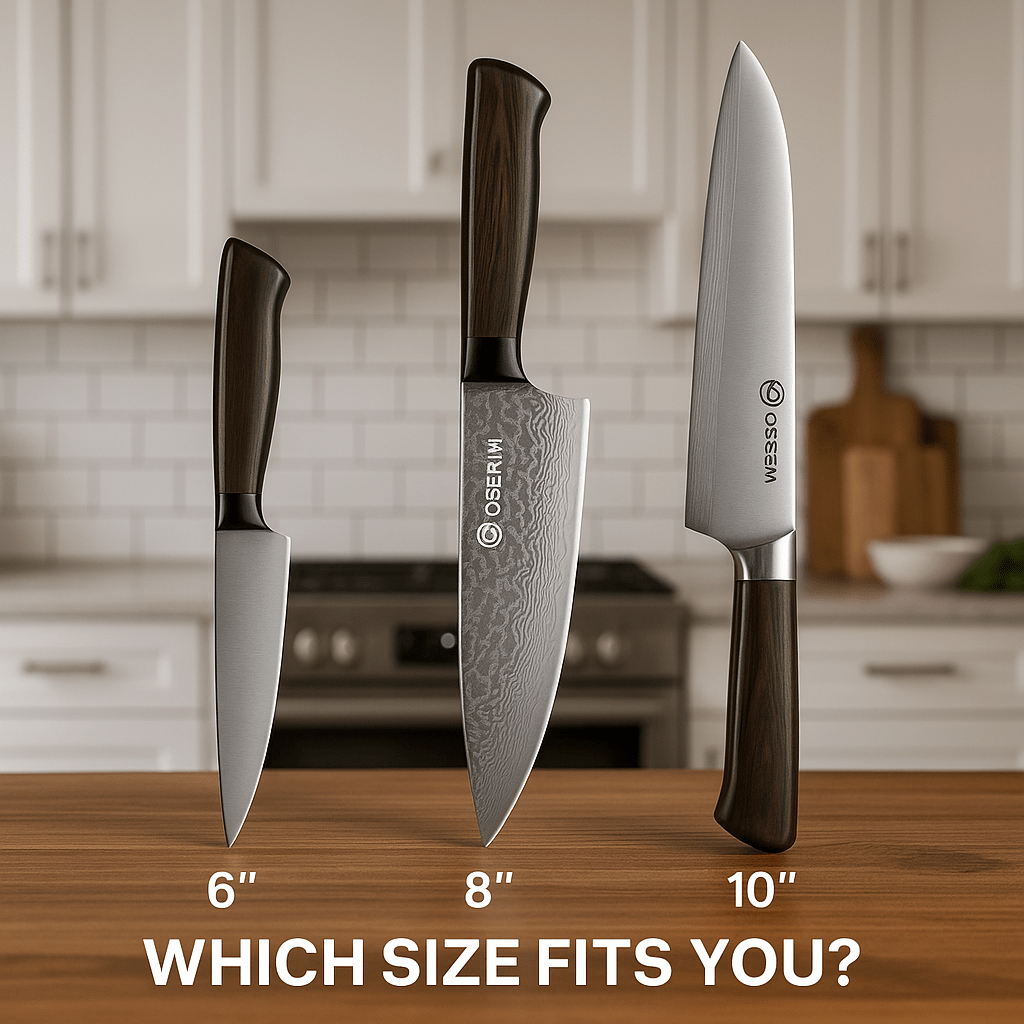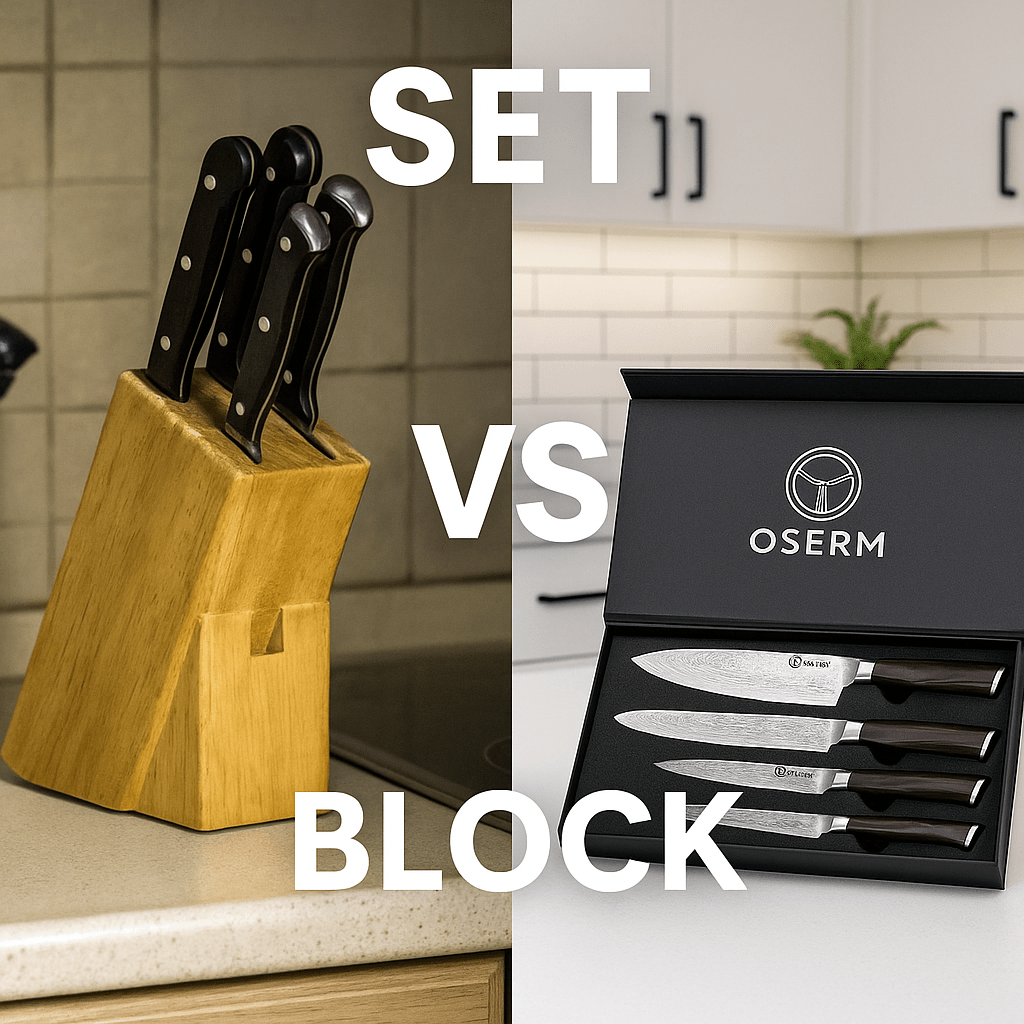
Wooden Handle vs Steel Handle – Which Lasts Longer?
When choosing a kitchen knife, most people focus on the blade. But the handle is just as important. It determines how comfortable the knife feels, how balanced it is, and even how long the knife will last. Two of the most common handle types are wooden handles and steel handles. Let’s compare them in terms of durability, aesthetics, and practicality.
Wooden Handles: Tradition Meets Comfort
Wood has been used for knife handles for centuries. Many traditional Japanese knives still feature magnolia wood or pakkawood handles, known for their warmth and grip.
- Pros: Warm, natural feel in the hand; provides excellent grip even when wet; visually appealing, especially with resin-wood blends.
- Cons: Requires care—wood can swell, crack, or discolor if left wet; some cheaper wooden handles may loosen over time.
- Longevity: High-quality stabilized wood or resin-wood handles can last decades with proper care.
Steel Handles: Modern and Durable
Steel handles rose in popularity with Western-style knives, especially those marketed for professional kitchens. They offer durability but can come with trade-offs.
- Pros: Extremely durable; resistant to cracking, swelling, or insect damage; easy to clean.
- Cons: Can feel slippery when wet; less comfortable for long cutting sessions; cold, industrial look compared to the warmth of wood.
- Longevity: Steel handles can last a lifetime—but may become uncomfortable over years of heavy use.
Wood vs Steel: A Practical Comparison
| Feature | Wooden Handle | Steel Handle |
|---|---|---|
| Comfort | Warm, ergonomic, better grip | Cold, may feel slippery |
| Aesthetics | Natural beauty, customizable | Modern, industrial look |
| Durability | Excellent if stabilized/resin-wood | Virtually indestructible |
| Maintenance | Needs drying and care | Very low maintenance |
Which Lasts Longer?
On paper, steel handles are almost indestructible. But when it comes to real kitchen use, the answer is more nuanced:
- Steel may technically last longer, but many cooks replace knives early due to discomfort or hand fatigue.
- High-quality wooden or resin-wood handles, like those used in OSERM knives, balance durability with comfort. Stabilized wood won’t crack or warp easily, ensuring longevity.
- For daily use, a well-maintained wood handle can last just as long as steel, while offering a better grip and cooking experience.
OSERM’s Handle Choice
At OSERM, we use resin-wood hybrid handles that combine the elegance of natural wood with the strength of modern resin. This ensures resistance to moisture and cracking while maintaining the warmth and grip of wood. For us, longevity is about more than survival—it’s about comfort, beauty, and pride of ownership.
Conclusion
So, which lasts longer—wood or steel? Technically, steel handles may outlive wood. But in practice, the best knives are those you love to use every day. Wooden (or resin-wood) handles offer comfort, grip, and beauty that stand the test of time, making them the preferred choice for both home cooks and professionals alike.
Weekly Deal 🔥
Experience the perfect balance of tradition and durability with OSERM’s Damascus Knife Collection, featuring stabilized resin-wood handles for long-lasting comfort and elegance.
You Might Also Like
- Forged vs Stamped Knives – Which Should You Pick?
- Best Knife Size for Home Cooking – 6”, 8”, or 10”?
- The Truth About Damascus Knives – Worth It or Not?
Tags: wooden handle vs steel handle, OSERM knives, knife handle durability, Damascus knife comparison






